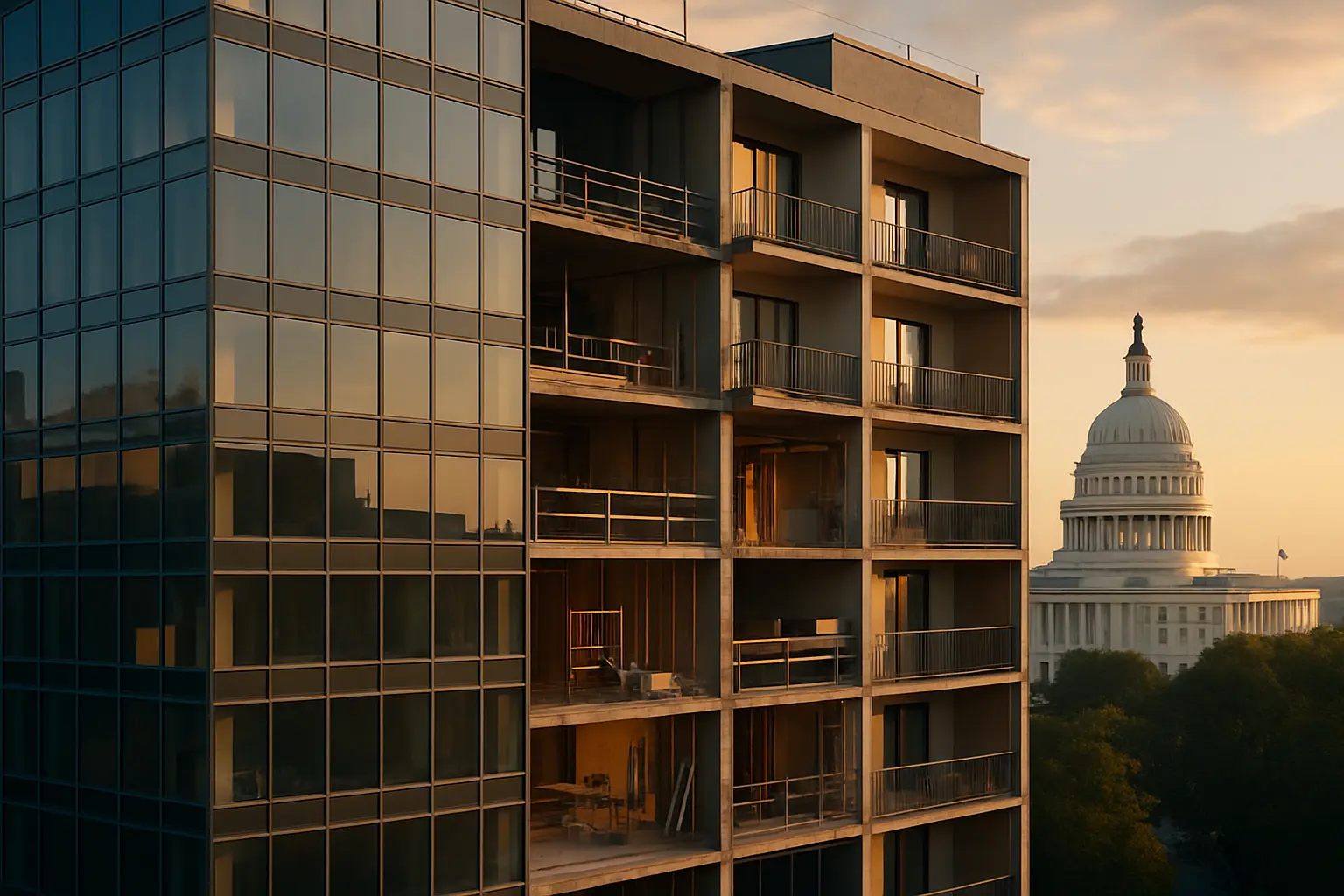From Office to Living Space: DC's Revolutionary Mixed-Use Property Transformation
Discover how Washington DC's innovative zoning changes are creating exciting opportunities for investors and homebuyers alike

The Evolution of DC's Commercial Districts
Washington DC's commercial landscape is undergoing a remarkable transformation as the city embraces a new era of urban development. Traditional office districts, once dominated by government agencies and corporate headquarters, are evolving into dynamic, mixed-use neighborhoods that cater to modern lifestyle preferences.
The shift has been particularly notable in areas like Downtown DC, NoMa, and the Capitol Riverfront, where vacant office buildings are finding new life as residential spaces. This transformation is driven by changing work patterns and an increasing demand for urban living options.
Key Transformation Areas
- Former government office complexes becoming luxury apartments
- Outdated commercial buildings transforming into mixed-use developments
- Creation of new community spaces and amenities
Smart Investment Strategies
For savvy investors, DC's property transformation presents unique opportunities. The key to success lies in identifying buildings with optimal conversion potential and understanding the market dynamics.
The most successful conversions combine residential units with retail spaces, creating self-sustaining micro-communities that attract both residents and visitors.
Investment Considerations
- Building structure and conversion feasibility
- Location and neighborhood development potential
- Market demand and demographic trends
- Return on investment projections
Navigating Zoning Laws
Understanding DC's zoning regulations is crucial for successful property conversion. Recent updates to the zoning code have made it easier to transform commercial properties into residential spaces, but developers must still navigate specific requirements.
Essential Guidelines
- Mixed-use zoning requirements and restrictions
- Building code compliance for residential conversion
- Parking and public space requirements
- Historic preservation considerations
Future-Proofing Your Investment
The future of DC's real estate market lies in adaptable, multi-purpose properties that can evolve with changing market demands. Successful mixed-use developments are those that create vibrant, sustainable communities.
Key Success Factors
- Flexible design that accommodates multiple uses
- Integration of smart technology and sustainable features
- Creation of community-focused amenities
- Strong connectivity to public transportation
Looking Ahead
As Washington DC continues to evolve, mixed-use properties are becoming the cornerstone of urban development. These transformative projects not only provide solutions to the city's housing needs but also create more sustainable, livable communities for future generations.
The successful transformation of DC's commercial properties into mixed-use developments represents more than just a trend – it's a fundamental shift in how we think about urban spaces and community building.


